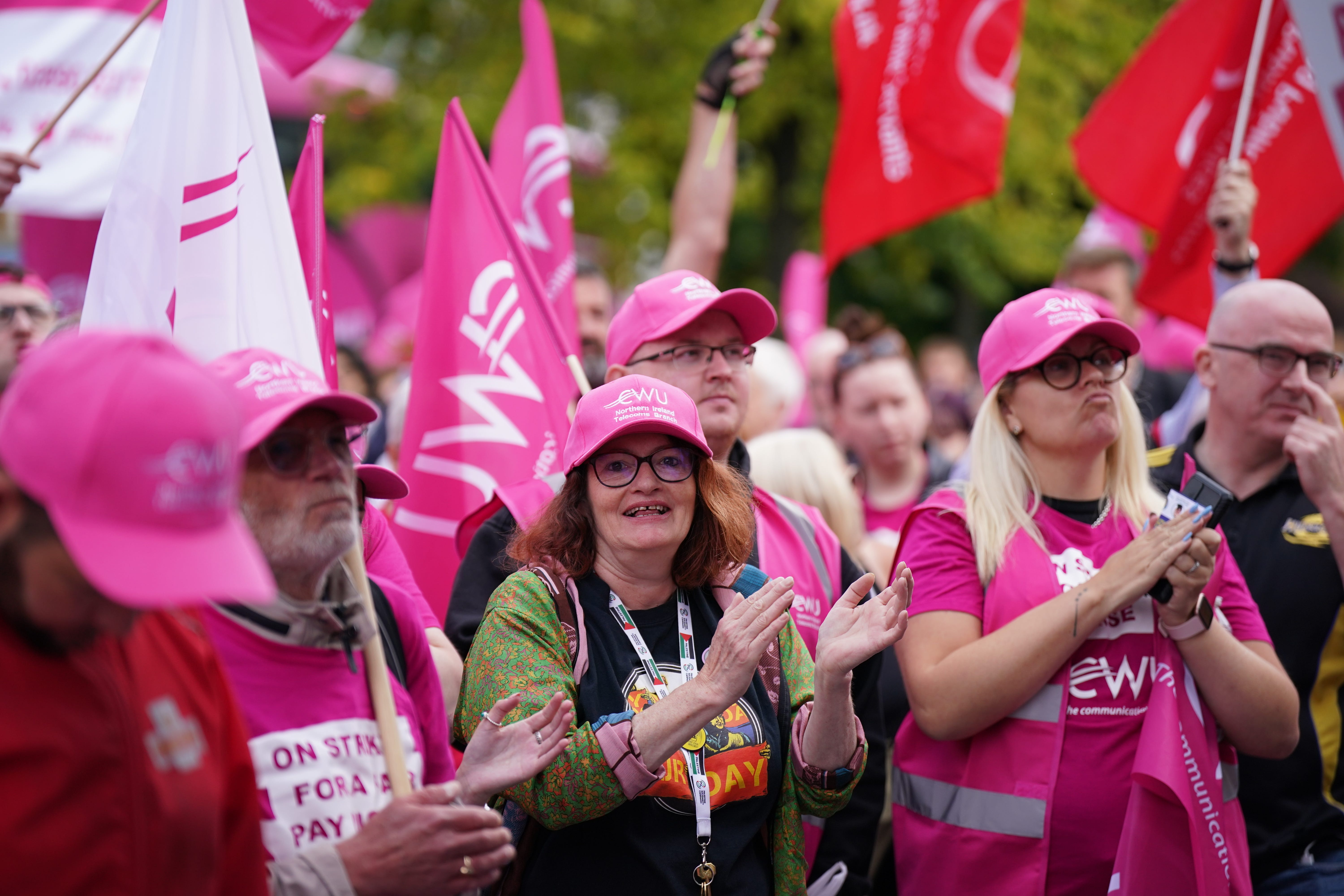BT pledges to attempt to protect 999 services amid strike action
BT workers have walked out across the UK in protest against a pay offer which they describe as an effective pay cut.

Your support helps us to tell the story
From reproductive rights to climate change to Big Tech, The Independent is on the ground when the story is developing. Whether it's investigating the financials of Elon Musk's pro-Trump PAC or producing our latest documentary, 'The A Word', which shines a light on the American women fighting for reproductive rights, we know how important it is to parse out the facts from the messaging.
At such a critical moment in US history, we need reporters on the ground. Your donation allows us to keep sending journalists to speak to both sides of the story.
The Independent is trusted by Americans across the entire political spectrum. And unlike many other quality news outlets, we choose not to lock Americans out of our reporting and analysis with paywalls. We believe quality journalism should be available to everyone, paid for by those who can afford it.
Your support makes all the difference.BT has pledged to do whatever it takes to protect 999 services as emergency call handlers take part in strike action.
The workers in Co Armagh have joined hundreds of BT/Openreach colleagues at picket lines in protest against a pay offer from management slammed as an effective “pay cut”.
BT said it awarded a pay increase to its team member and frontline colleagues of £1,500 which it said represents a pay rise of around 5% on average and 8% for the lowest paid, and it was effective from April 1 2022.
The Communication Workers Union (CWU), which represents the BT workers, said in the context of RPI inflation levels already hitting 11.7% this year, the offer is a “dramatic real-terms pay cut”.
It said in previous strikes it was agreed between the union and the company that these workers would be exempt from the strike and that a certain number of workers would be available to work at any given time.
The CWU said that position has changed after “widespread outrage at the company’s refusal to negotiate with union representatives”.
Further walkouts are planned to take place on Monday October 10, Thursday October 20 and Monday October 24.
BT said it “will do whatever it takes to protect 999 services – redeploying our people to the most important priority is a normal part of BT Group operations”.
CWU Northern Ireland Regional Secretary Erin Massey said they want BT to realise the worth of their workers.
Speaking to the PA news agency in Co Armagh where workers have taken part in UK-wide walkouts over pay, she said the pay increase came “without negotiations in a breach of our agreement”.
“We have a collective bargaining agreement with the company that they have conveniently overlooked,” she said.
“The centre here in Co Armagh does the 999 calls and they are the first point of contact when emergency calls come in, and then we have to divert them to the relevant body, should it be the fire service, police, ambulance, coastguard, mountain rescue.
“I want the company to realise their worth, I want the company to start respecting their workers and realise that they are underpaying them.
“The engineers kept the country running during the pandemic, they kept the broadband services, the phone line, nobody can work without broadband, nobody can work without telephones.”
Asked were people being put at risk by 999 call handlers walking out, Ms Massey said: “The company is putting the public at risk by not acknowledging and not appreciating the workers that they have.
“Any risks that are involved, I’m going to have to put back to the company because they had plenty of notice that we were going to call this strike. We gave them the chance, we negotiated with them last time and we didn’t call out the 999 call centre workers because we appreciated that and we didn’t want to do it, but the company has left us with no choice.
“We had to bring them out this time because we have to make them sit up and listen. We’re serious about what we’re doing, and we’re not going to stop until we get a serious pay rise.”